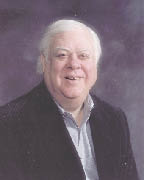NERJ - What is Marketing?
Sproat - It depends on whom you ask or what you read, as the explanations are endless. Years ago, the simple definition of marketing was, "Find out what the customer wants and give it to him." I don't think Poland Springs and other bottled water sellers had that in mind when they began selling water in bottles, and, by the case. There didn't seem to be any great demand or need to buy water in bottles. After all, water was free at any spigot. However, it didn't all taste or smell the same. Chemicals are added to city water and private wells deliver a variety of colors and odors that often are not pleasant. So - along comes water in a bottle that is portable, consistent in quality and, in the beginning, had few competitors. A new industry was born that satisfied a demand for water that was formerly carried in personal containers that needed washing or large coolers for events.
NERJ - How is marketing defined today?
Sproat - Today, marketing involves a wide range of disciplines to ensure that needs and desires of consumers are met and that they receive value for the money they spend. Marketing plans are typically developed for a single product. Where multiple products are offered (consider all the Coca-Cola product lines and their individual marketing schemes). Market research is used to determine what groups of potential customers exist, what their needs are, which of those needs can be met, and how the company plans to meet them. The competition is analyzed, a plan is set to position the product or service, a niche market is created, if appropriate, and prices are set. Other elements of marketing include promoting a product or service through advertising, promotions, public relations, publicity and sales.
NERJ - What goes into these five elements of promotion?
Sproat - Good question. Many companies believe that when they run ads, their marketing effort is complete. Not so. Marketing is a five legged stool consisting of advertising, promotions, public relations, publicity and sales. Advertising brings a product or service to the attention of potential and current customers by spending money on media, such as, newspapers, magazines, TV, radio, billboards, direct mail, brochures, web sites, e-mails, personal contact, etc. Promotion, a combination of advertising, direct promotions, public relations and publicity, helps keep the product or service in the minds of customers and stimulates demand. Companies can control their advertising messages but have little control over public relations (writing news releases and forwarding to media) and publicity which is driven by media reporters or photographers. A first rate news release prepared by a well intentioned company is at the mercy of media for publication. Usually smaller media, such as, community newspapers or cable TV look for content and are more likely to print or air releases. If a reporter shows up on your doorstep (publicity), be honest with him, answer all questions and ask to have critical information repeated back to you for accuracy. Sales plans include cultivating prospective buyers by conveying features, advantages and benefits of a product or service that leads to closing a sale or at least coming to an agreement on pricing.
NERJ - So, how do you wrap all this information into a neat package?
Sproat - Readers Digest recently published a tongue-in-cheek piece that makes the five legs more clear in a humorous way. It goes like this:
"…if the circus is coming to town and you paint a sign saying 'Circus Coming to the Fairground Saturday', that's advertising. If you put a sign on the back of an elephant and walk it into town, that's promotion. If the elephant walks through the mayor's flower bed, that's publicity (a reporter will surely write about that). And, if you get the mayor to laugh about it, that's public relations. If the town's citizens go to the circus, you show them the many entertainment booths, explain how much fun they'll have spending money at the booths, answer their questions and ultimately, they spenda lot at the circus, that's sales."
Bob Sproat is managing principal at The Idea Place, Inc., East Granby, Conn.
Tags:
Question of the Month: Why has marketing become such a driving force in today's business world?
November 29, 2007 - Connecticut









